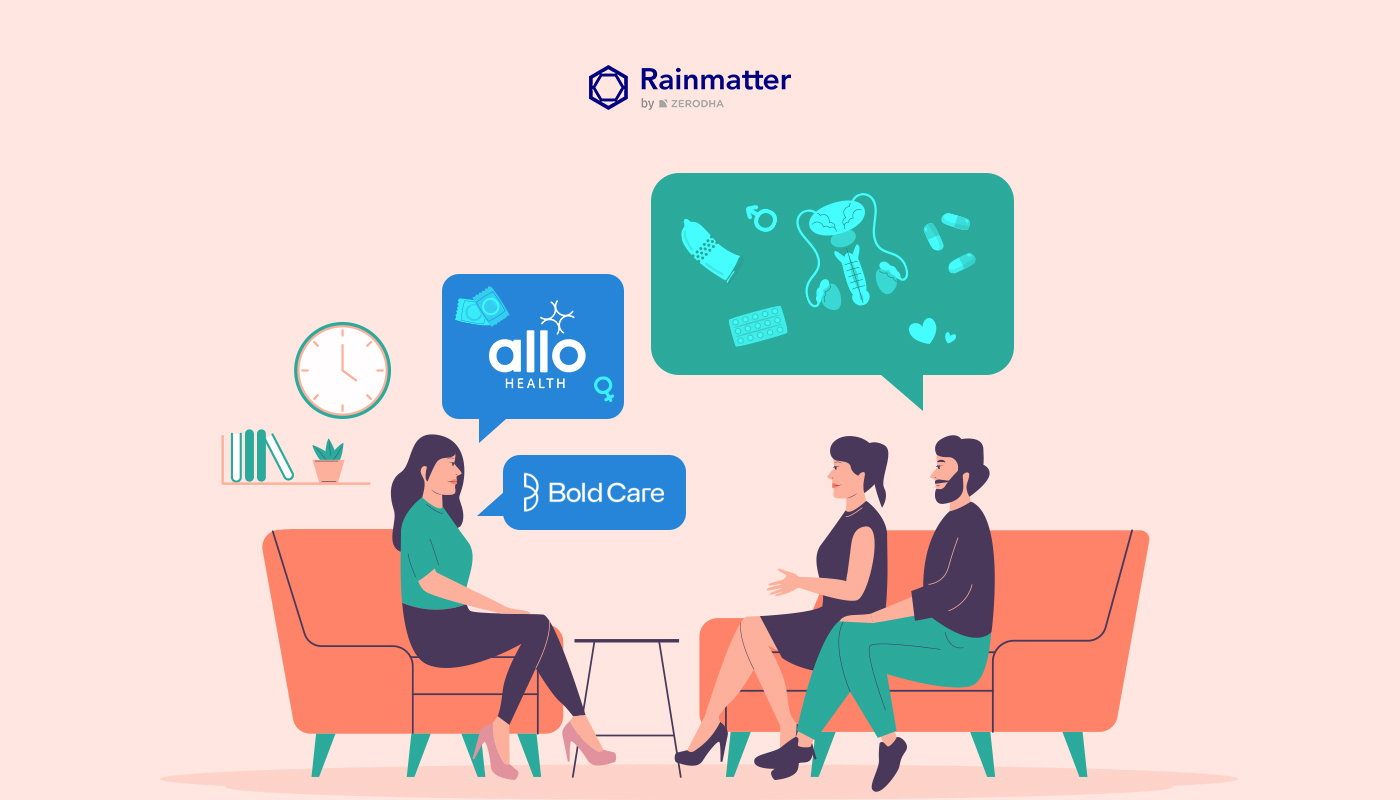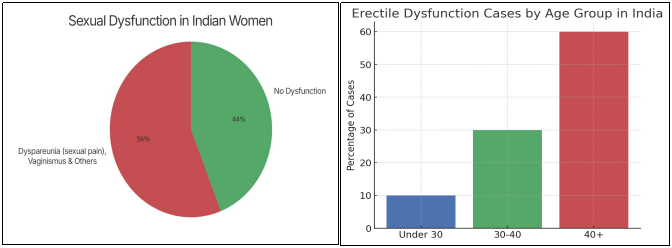
Investing in better conversations around Sexual Health
Many of us in India have grown up without having open conversations about sex, seeing it as taboo or sometimes even feeling guilty about the little that’s spoken. Hence, sexual health challenges are far more widespread than most people realize. Male infertility now accounts for 50% of infertility cases in India, which is a significant shift from the traditional assumption that fertility issues primarily affect women. 1 in 10 Indian men experience erectile dysfunction, with about 40% of these cases occurring in men under 40. This means sexual health issues are increasingly affecting younger demographics. India also has one of the highest rates of untreated STIs globally, particularly among youth and migrant populations who often lack access to proper healthcare and education. These communities face barriers including stigma, cost, and limited healthcare infrastructure. 56% of Indian women report some form of sexual dysfunction, including vaginismus and dyspareunia (sexual pain disorder). Dyspareunia affects up to 56% of Indian women, often normalized and under-treated due to stigma. Awareness about these conditions is still less than 30% among surveyed urban women.

When we consulted with researchers and experts, a consistent theme emerged, which is that mental health and sexual wellness are intrinsically linked. Stress, anxiety, and depression can significantly impact sexual function, while sexual health issues often contribute to psychological distress. It’s an interconnected cycle that affects overall well-being. Despite the serious implications of these issues, both sexual health and mental health remain largely taboo subjects in Indian society, and this cultural silence prevents people from seeking help, discussing concerns openly with partners, or accessing appropriate care, turning treatable conditions into long-term problems that affect relationships, families, and even quality of life.
We don’t talk openly about sexual health because of deep cultural barriers and educational failures, which is why 70% of people seeking sexual health information are under 30. Yet, most hold conservative attitudes toward sexuality due to limited knowledge. In reality, sexual wellness should be treated as routine healthcare that everyone deserves access to, not as a luxury for the few or a topic too sensitive to address. The key to better sexual health conversations is making them feel normal instead of awkward. Doctors could start by creating a level of comfort with people, asking questions like “Any health concerns you want to talk about?” rather than diving straight into personal details. For couples, relationship expert Esther Perel suggests framing things as “I want us both to be healthy” instead of “you have a problem.” It makes a huge difference. Parents can start by learning the basics themselves, then gradually sharing age-appropriate information about body changes without getting into topics that make everyone uncomfortable.
This is exactly the kind of problem that caught our attention. At Rainmatter, we are backing BoldCare and Allo Health because these companies are actually changing how we talk about sexual health. BoldCare treats men’s and women’s sexual health like any other health issue, with messaging around products and services that don’t feel weird to access. Allo Health brings in real doctors, and along with creating educational content that doesn’t feel intimidating. Both companies get something important, which is that people need help, but they also need to trust the source and feel comfortable asking for it while building trust.
We recently had both teams on our podcast to discuss the sexual health landscape and their solutions. What stood out was that everyone knows this problem exists, but no one wants to tackle it, especially for people ignored by traditional healthcare.
When these platforms make sexual health conversations easier and less intimidating, something interesting happens. When one person begins engaging, whether by using these services, asking their doctor better questions, or speaking openly with a partner, it often encourages others to follow. Over time, these small shifts can make conversations about sexual wellness feel normal everywhere.

+1 on from something to boners
Business POV what I understand that
1. Allo Health- Trying to do something like cloud9 where segment is sexual health. Good untapped market from the current condition where people are also approaching either direct finding Google reviews or family doc’s recommendation (educated/ Target customer)
Problem I am seeing in this is category’s demand of clinic as per Travel Time/ Distance of customer.
2. Bold care- Good segment, can be either like boat (non pharma sexual products) or pharma, both can’t be in the same boat :). IMO non Parma products will be the top performer and its good to create something around the same which gives high quality of material (little premium also works here)
Sexual health and mental health are inseparable. Silence around sexuality often manifests as anxiety, depression, and broken relationships.
At MyManah, we’re building India’s first AI-powered ecosystem that bridges emotional, mental, and sexual well-being — making care accessible, evidence-based, and scalable.
Normalizing this connection isn’t just healthcare reform, it’s nation-building.